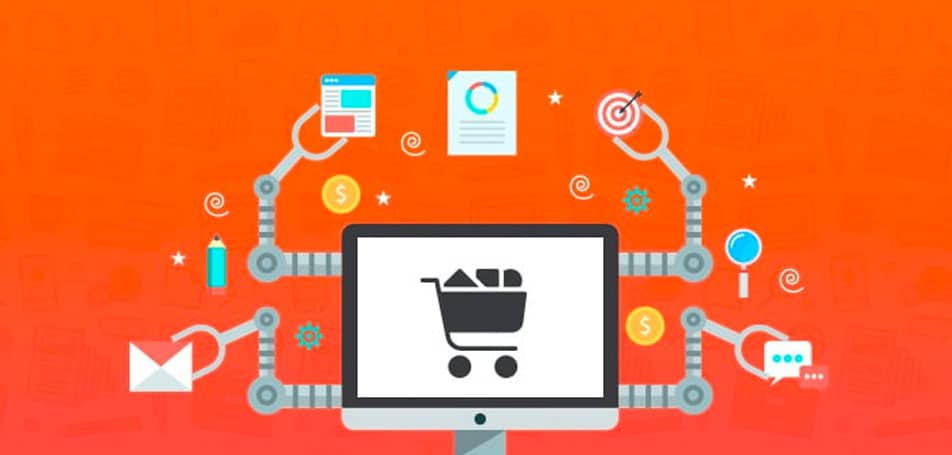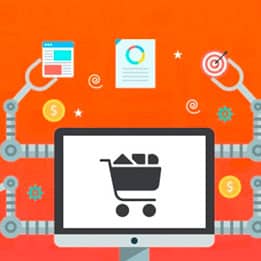
When you begin expanding your eCommerce store, you might find it overwhelming to manage the litany of tasks that start to crop up. The average business owner is responsible for 10 or more tasks per day, ranging from creating marketing campaigns to optimizing their website to engaging with followers on social media to monitoring product inventory. Running a business is definitely not a “one-man job,” but that doesn’t necessarily mean you need to go out and hire new employees right away, either.
eCommerce automation software is the key to success as your business grows. This type of software allows you to set up campaigns that are designed to complete specific actions at the right times in a variety of eCommerce situations, from emails to customer segmentation to retargeting campaigns.
Key Reasons to Support Automation
Simply put, automation can save you precious time, money, and hassle. Automating tedious processes can eliminate human error while giving you more time and energy to focus on other crucial areas of your business. Instead of hiring additional employees to help you keep your store running smoothly, you can rely on an automated system to handle a variety of recurring tasks. For example, instead of spending hours reviewing and monitoring your inventory, you can set up an automatic process to reorder items once supplies begin to run low.
Current Trends in Automation
Experts predict that 2020 will be a major year of growth for automation. More and more eCommerce businesses are expected to create mobile-friendly sites, optimize their websites, personalize customers’ shopping experiences, and build omnichannel platforms. Here are some of the top automation trends that retailers can expect this year:
- Customer personalization
Software that tracks user behaviors and analyzes consumer data points can help merchants build customized shopping journeys for every individual that visits their website. Personalization can even extend beyond product recommendations and retargeting ads; businesses may also integrate services like virtual shopping assistants or chatbots to meet the needs of every consumer.
- Analytics
Erica Mazzucato, the product marketing manager at Corra, says, “Point of sale system (POS) data still remains a largely untapped opportunity for merchants to access insights into customer preferences and demographics.” In 2020, Mazzucato believes that eCommerce retailers will utilize automation tools to take full advantage of the vast amount of data they collect from consumers in order to create brilliant marketing campaigns.
- Email sequences
Setting up specific messages to target customers at the right times can work wonders. For instance, creating an email sequence for abandoned carts can encourage customers to return to your site to complete the transaction. Sending a welcome email to first-time buyers and offering them a discount on their next purchase can help you create a loyal customer base. You could even create specialized emails for certain holidays, birthdays, and more!
- Artificial intelligence
It’s nearly impossible to talk about automation without mentioning artificial intelligence. There are so many possible applications for AI and machine learning capabilities in eCommerce, from showing consumer trends to segmenting customers to predicting future shopping behaviors. AI can even help merchants optimize their stores for voice search, which is expected to make up 50% of all web searches by the end of 2020.
Tips for Automating Your Own eCommerce Store
Although automation can save you plenty of time and money in the long run, it often requires patient experimentation before you discover the process that works best for you and your customers. However, you don’t need to try and do it all alone! The Magento Marketplace offers hundreds of marketing automation extensions for all your eCommerce needs, including:
- Dot digital Engagement Cloud. This extension effortlessly syncs customer data between your dotdigital account and Magento store and provides numerous opportunities to automate your eCommerce processes. The Automation Program Builder features:
- Abandoned cart series.
- Suggested abandonment campaigns.
- Welcome, post-purchase, birthday, loyalty campaigns, and other types of automated messages.
- Multichannel integration with any third-party system.
- Omnichannel automation for email, SMS, social media, Google Ads, and more.
- MailChimp. This immensely popular tool is used by millions of businesses to manage their emails, marketing campaigns, online ads, and so much more. MailChimp provides several intuitive tools that will help you build personalized experiences for each of your customers without spending countless hours manually inputting data.
- Adaplo. The adaplo extension automatically segments your audience and retargets them with the perfect ads at the right times. This service works across Google Ads and Facebook Ads to attract both new customers and previous buyers with dynamic marketing campaigns.
You can check out the Marketplace for additional options, or you can always request assistance from expert Magento developers who will be happy to help you get started with eCommerce automation!
















